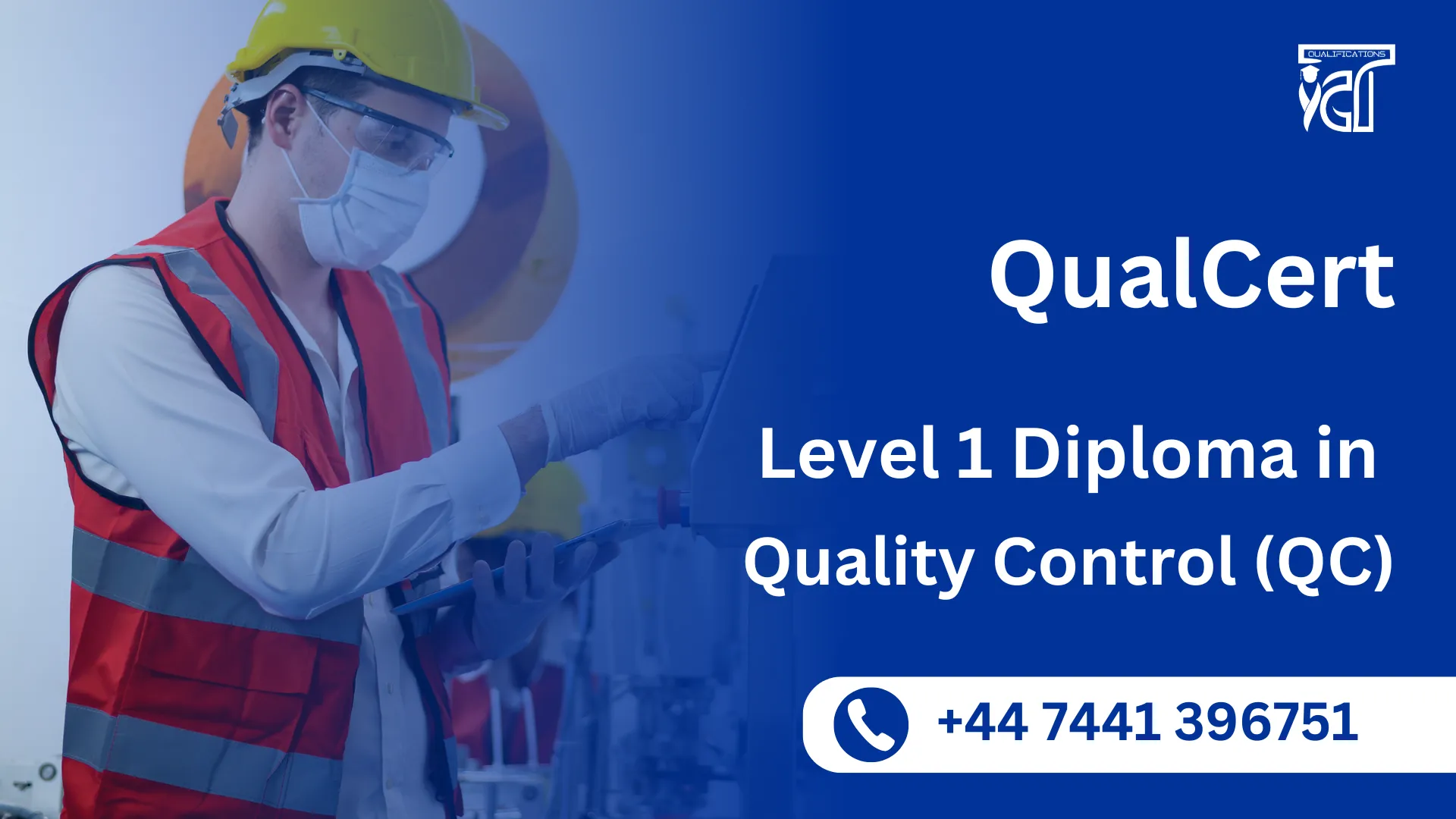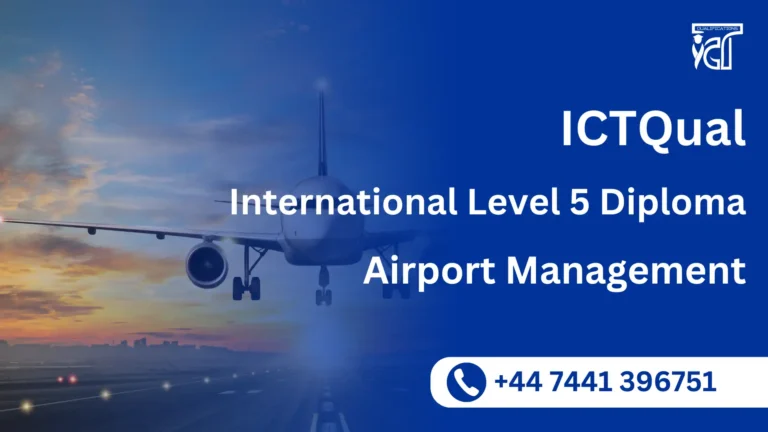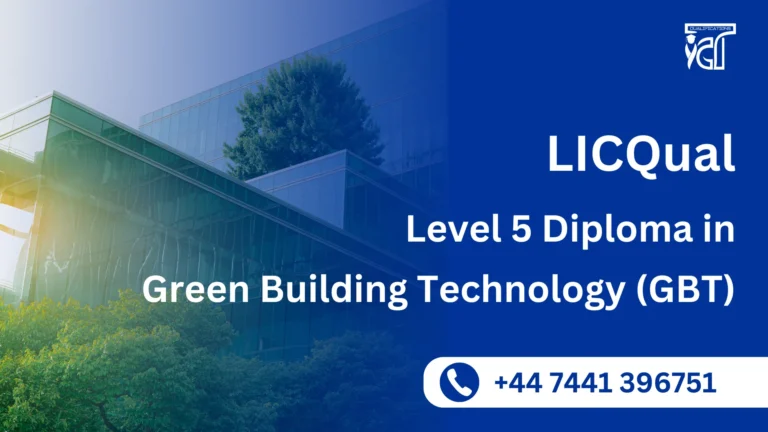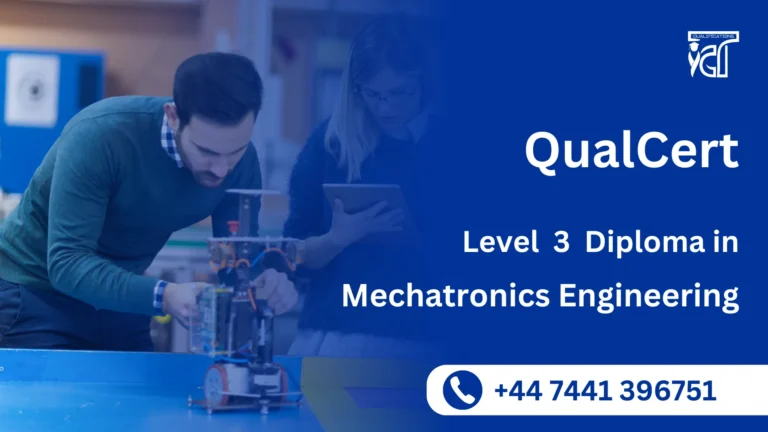Are you looking to start a career in quality control or improve your skills in quality assurance? The QualCert Level 1 Diploma in Quality Control (QC) is the perfect entry point for individuals who want to make their mark in the fast-paced and essential field of quality control. This diploma will equip you with foundational knowledge and hands-on skills to perform product inspections, identify defects, and maintain high-quality standards in various industries.
The QualCert Level 1 Diploma in Quality Control (QC) is designed for beginners and individuals looking to develop their skills in the quality management sector. This qualification provides a comprehensive introduction to quality control (QC) principles and techniques, enabling learners to perform basic quality checks in production and manufacturing environments. With a focus on practical application, this diploma ensures that learners gain valuable experience in inspection techniques, product specifications, and health and safety.
The QualCert Level 1 Diploma in Quality Control (QC) is structured to provide learners with a solid understanding of the core concepts and practices used in quality control. The course covers essential topics, including product inspection, defect detection, and maintaining regulatory compliance. Whether you’re looking to enter the manufacturing, engineering, or textile industries, this qualification will help you gain the skills and confidence to contribute to the quality assurance process.
This qualification is ideal for those seeking a recognized qualification that provides a pathway to further study or career advancement in the field of quality control and quality assurance.
The QualCert Level 1 Diploma in Quality Control (QC) offers an excellent opportunity for anyone looking to break into the quality control field or enhance their knowledge of quality assurance practices. With practical learning, industry-recognized certification, and the potential for career advancement, this qualification serves as a stepping stone toward a successful career in quality control.
QualCert Level 1 Diploma in Quality Control (QC)
This QualCert Level 1 Diploma in Quality Control (QC) course offers 20 Credits, requiring a Total Qualification Time (TQT) of 200 hours, including 100 Guided Learning Hours (GLH). It is designed for efficient and focused skill development in Quality Control (QC).
| Unit Ref# | Unit Title | Credit | GLH | TQT |
| QC01003 – 1 | Fundamentals of Quality Management | 3 | 15 | 30 |
| QC01003 – 2 | Quality Control in Earthworks | 3 | 15 | 30 |
| QC01003 – 3 | Project Documentation Standards | 3 | 15 | 30 |
| QC01003 – 4 | Sampling Techniques in QC | 3 | 15 | 30 |
| QC01003 – 5 | Quality Incident Reporting | 4 | 20 | 40 |
| QC01003 – 6 | Introduction to Sustainability in QC | 4 | 20 | 40 |
This course is intended for individuals who want to gain a deeper understanding of quality control principles and practices, advance their careers in quality-related roles, and play a crucial role in ensuring the delivery of high-quality products and services in various industries.
GLH (Guided Learning Hours) and TQT (Total Qualification Time) are terms commonly used in vocational qualifications to help define the amount of time a learner is expected to spend on their studies.
1. GLH (Guided Learning Hours)
GLH refers to the number of hours a learner spends being directly taught, supervised, or supported during their course. This includes the time spent in activities such as:
- Classroom instruction
- Practical workshops
- One-on-one tutoring or mentoring sessions
- Online learning sessions with tutor support
In other words, GLH represents the time that learners are actively engaged with their instructors or learning activities.
2. TQT (Total Qualification Time)
TQT represents the total amount of time a learner is expected to invest in completing a qualification, including:
- GLH (Guided Learning Hours): Time spent on direct learning, as explained above.
- Self-Directed Learning: This includes time spent on independent study, research, assignment completion, preparation for exams, and any other work the learner does outside of direct teaching hours.
TQT is a broader measure that includes all the time required to achieve the qualification. It helps learners and employers understand the overall commitment required for the qualification.
Key Differences Between GLH and TQT:
- GLH focuses on direct learning with guidance or supervision.
- TQT includes GLH as well as independent study time and other learning-related activities.
Example:
If a qualification has a TQT of 600 hours and a GLH of 250 hours, it means the learner should spend 250 hours in direct learning (classroom, online, or tutor-led sessions) and 350 hours on independent study or research.
Learning Outcomes: Level 1 Diploma in Quality Control (QC) Course
Upon successful completion of the Level 1 Diploma in Quality Control (QC) course, participants will have achieved the following learning outcomes, equipping them with valuable skills and knowledge in the field of quality control:
1. Fundamentals of Quality Management
- Understand the key principles and concepts of quality management and their importance in organizational success.
- Define the roles and responsibilities of quality control in maintaining product and service standards.
- Identify the relationship between quality management systems and continuous improvement.
- Apply basic quality tools and techniques to monitor and improve processes.
- Recognize the role of quality management in achieving customer satisfaction and compliance with standards.
2. Quality Control in Earthworks
- Understand the basics of quality control specific to earthworks in construction projects.
- Identify key factors affecting the quality of earthworks, including soil compaction and grading.
- Conduct basic inspections and testing procedures for earthworks to ensure compliance with project specifications.
- Recognize common defects in earthwork processes and suggest corrective actions.
- Document and report earthwork quality control activities accurately.
3. Project Documentation Standards
- Understand the importance of proper documentation in quality control processes.
- Identify and adhere to project-specific documentation standards and formats.
- Prepare and manage essential quality control documents such as inspection reports, checklists, and compliance records.
- Ensure documentation is complete, accurate, and audit-ready at all stages of a project.
- Utilize effective methods for storing, retrieving, and sharing quality-related documentation.
4. Sampling Techniques in QC
- Understand the purpose and significance of sampling in quality control processes.
- Identify different sampling methods and select the appropriate technique for specific scenarios.
- Perform sampling activities in line with industry standards to ensure representative and reliable results.
- Analyze and interpret sampling data to assess product or material quality.
- Document sampling activities and results for quality assurance and compliance purposes.
5. Quality Incident Reporting
- Understand the importance of incident reporting in maintaining quality standards.
- Identify common quality incidents and their potential impacts on projects and operations.
- Prepare clear and accurate incident reports, including root cause analysis and recommendations.
- Communicate quality incidents effectively to relevant stakeholders and implement corrective actions.
- Recognize the role of incident reporting in driving continuous improvement within quality control systems.
6. Introduction to Sustainability in QC
- Understand the concept of sustainability and its relevance to quality control.
- Identify sustainable practices in quality control processes, such as reducing waste and conserving resources.
- Evaluate the environmental impact of quality control decisions and practices.
- Promote sustainability initiatives while maintaining product or service quality.
- Recognize the role of sustainability in enhancing organizational reputation and compliance with environmental standards.
Benefits of the QualCert Level 1 Award in Quality Control (QC)
Industry-Recognized Qualification
The QualCert Level 1 Diploma in Quality Control (QC) is a widely respected and recognized certification in the quality control industry. Holding this diploma signals to employers that you have the essential skills and knowledge required to ensure product quality, compliance, and standards across various sectors, including manufacturing, engineering, and production.
Practical Skills Development
This diploma focuses on hands-on learning, equipping you with practical skills in quality control processes. You’ll gain valuable experience in using inspection tools, identifying defects, and ensuring that products meet industry standards, giving you an edge in real-world job settings.
Entry-Level Qualification for Career Starter
The QualCert Level 1 Diploma in Quality Control is ideal for individuals who are new to the quality control field. Whether you’re a school leaver, career changer, or someone looking to start a new role, this entry-level qualification provides you with a strong foundation to build a career in quality control or quality assurance.
Increased Employability
With quality control being a critical function across industries, this qualification enhances your employability by demonstrating to employers that you are well-prepared to take on roles such as quality inspector, QC assistant, or production quality technician. It gives you a competitive edge in the job market.
Comprehensive Understanding of Quality Control Principles
Throughout the course, you will learn key aspects of quality control, such as inspection techniques, product specifications, and the importance of defect detection. This comprehensive knowledge ensures you are ready to tackle a variety of quality-related tasks in the workplace.
Pathway to Career Growth
The QualCert Level 1 Diploma in Quality Control (QC) provides a stepping stone for career advancement. After completing this diploma, you can progress to more advanced qualifications, such as Level 2 or Level 3 Diplomas in Quality Control, or take on more senior roles, such as quality assurance manager or QC supervisor.
Broad Industry Application
The skills gained from this diploma are applicable across a wide range of industries, including manufacturing, engineering, automotive, pharmaceuticals, food production, and more. Whether you’re working in a factory, laboratory, or construction site, this qualification opens doors to a variety of roles in quality control.
Focus on Health and Safety
The course includes essential health and safety training, ensuring that learners understand how to work safely within quality control environments. This is critical in ensuring that you not only maintain quality but also comply with workplace safety standards, which is crucial in high-risk industries.
Foundation for Further Studies
Upon completion, you can continue your education in quality management or related fields. The QualCert Level 1 Diploma lays the groundwork for further academic and professional development, enabling you to pursue more specialized training or certifications to enhance your career prospects.
Flexible Learning Options
The QualCert Level 1 Diploma in Quality Control (QC) offers flexibility, allowing learners to complete the course at their own pace. This makes it a convenient option for those balancing work and study, ensuring you can learn without disrupting your current commitments.
Affordable and Accessible
This diploma is designed to be affordable and accessible, making it an excellent choice for individuals looking to enter the quality control field without a significant financial investment. It provides high-quality training at a cost-effective price, with an emphasis on delivering value to learners.
The “Level 1 Diploma in Quality Control (QC)” course is designed for a diverse range of individuals who seek to develop advanced knowledge and expertise in quality control principles and practices. This course is suitable for:
- Aspiring Quality Control Professionals: Individuals who aspire to pursue a career in quality control or quality assurance, with the goal of becoming quality control specialists, engineers, or managers.
- Quality Control Technicians and Inspectors: Professionals already working in quality control, inspection, or related roles who want to enhance their knowledge and skills, qualify for more senior positions, or advance in their careers.
- Quality Assurance Specialists: Quality assurance professionals looking to deepen their understanding of quality control methodologies and tools to complement their quality assurance expertise.
- Managers and Supervisors: Managers and supervisors responsible for overseeing quality control processes and teams within their organizations, seeking to enhance their leadership and decision-making abilities in quality management.
- Process Improvement Practitioners: Individuals involved in process improvement and optimization initiatives who wish to integrate advanced quality control techniques into their improvement projects.
- Engineering and Science Graduates: Recent graduates and individuals with educational backgrounds in engineering, science, or related fields who want to specialize in quality control as part of their career development.
- Industry-Specific Professionals: Professionals working in industries where quality control is critical, such as manufacturing, healthcare, pharmaceuticals, aerospace, automotive, and more, looking to excel in their roles.
- Entrepreneurs and Small Business Owners: Entrepreneurs and small business owners seeking to establish and maintain high-quality standards for their products or services.
- Continuous Improvement Enthusiasts: Individuals with a passion for continuous improvement and a commitment to elevating product or service quality in their organizations.
- Career Changers: Those considering a career change into quality control or related fields and seeking a strong foundation in quality control principles.
- Individuals Seeking Professional Growth: Anyone interested in expanding their knowledge and skills to become a valuable contributor to quality improvement initiatives within their organization.
Entry Requirements
Register Now
Qualification Process
Qualification Process for the QualCert Level 1 Diploma in Quality Control (QC)
- Self-Assessment:
Begin by evaluating your eligibility to ensure you meet the qualification requirements, including work experience, knowledge, and language proficiency. - Registration:
Complete your registration by submitting the required documents, including a scanned copy of a valid ID, and paying the registration fee. - Induction:
An assessor will conduct an induction to confirm your eligibility for the course and explain the evidence requirements. If you do not meet the criteria, your registration will be canceled, and the fee will be refunded. - Assignmnets & Evidence Submission:
Provide all assignmnets and the necessary evidence based on the assessment criteria outlined in the course. If you are unsure of the required evidence, consult with the assessor for guidance on the type and nature of evidence needed. - Feedback and Revision:
The assessor will review your submitted evidence and provide feedback. Evidence that meets the criteria will be marked as “Criteria Met,” while any gaps will be identified. You will be asked to revise and resubmit if needed. - Competence Evidence:
Submit final evidence demonstrating that all learning outcomes have been met. This evidence will be marked as “Criteria Met” by the assessor once it is satisfactory. - Internal Quality Assurance (IQA):
The Internal Quality Assurance Verifier (IQA) will review your evidence to ensure consistency, quality, and compliance with standards. - External Verification:
The IQA will submit your portfolio to QualCert External Quality Assurance Verifiers (EQA) for final confirmation. The EQA may contact you directly to verify the authenticity of your evidence. - Certification:
Upon successful completion of all checks, QualCert will issue your official certificate, confirming that you have attained the QualCert Level 1 Diploma in Quality Control (QC).







